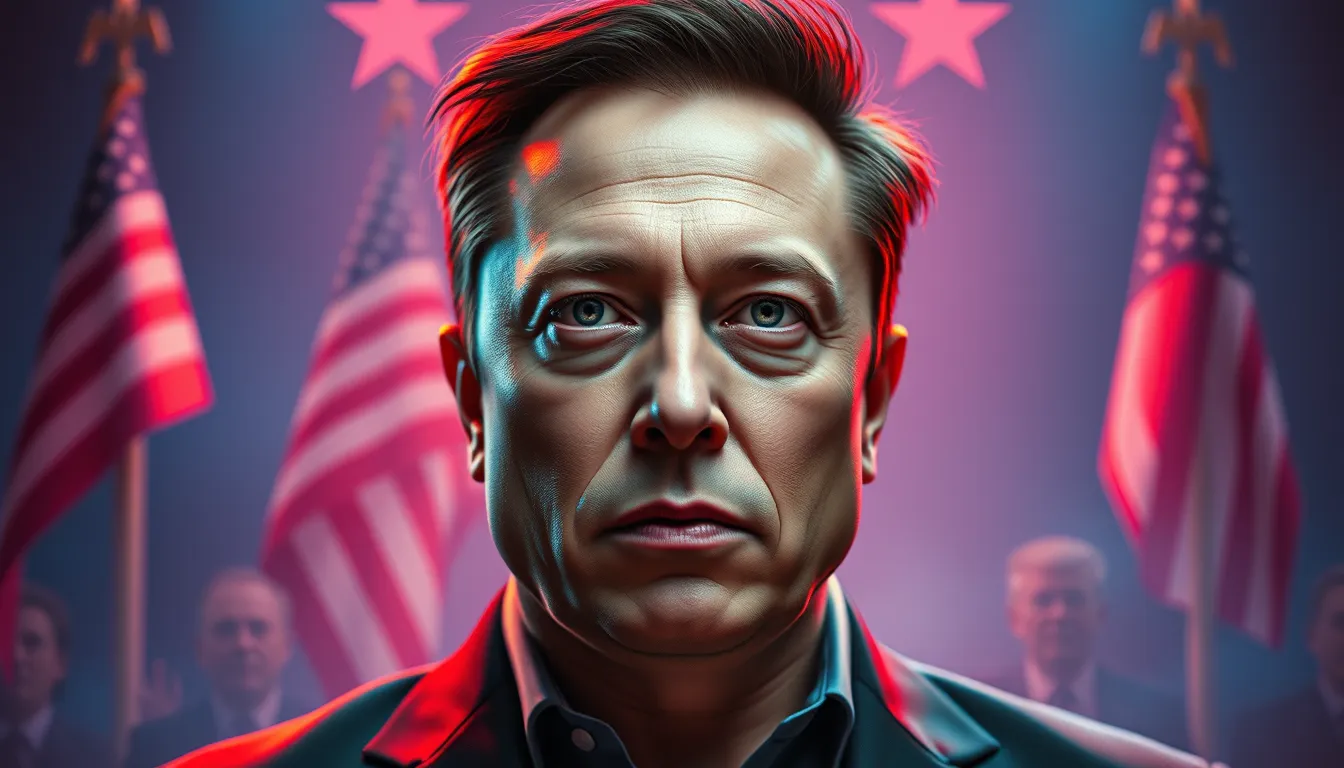Now Reading: Elon Musk Controversy: Unmasking the MAGA Backlash
-
01
Elon Musk Controversy: Unmasking the MAGA Backlash
Elon Musk Controversy: Unmasking the MAGA Backlash

Elon Musk Controversy: Unmasking the MAGA Backlash
In recent times, the narrative around Elon Musk has taken an unexpected turn. Once lauded as a visionary entrepreneur, Musk finds himself at the center of an escalating controversy that is reverberating throughout the MAGA world. This evolving situation, now widely discussed under the banner of the “Elon Musk controversy,” reflects deeper tensions within a movement that once embraced him as an icon of innovation and conservative values.
MAGA Ideology and Political Realignment: A Closer Look
The current controversy revolves around what appears to be a significant political realignment. Early in his career, Elon Musk was celebrated for challenging the status quo. His bold business decisions and unapologetic engagement in political and social debates earned him admiration. However, as his influence expanded, his positions have started clashing with the core tenets of MAGA ideology. Critics argue that his recent political statements and public actions have stirred unrest among those who firmly uphold conservative values.
A Wired article, available at Wired.com, aptly captured this sentiment by describing the shifting loyalties with the phrase “100% Stupid.” This label has come to symbolize a discontent growing within the MAGA community as supporters struggle to reconcile Musk’s past revolutionary image with his recent, more controversial positions.
Why MAGA Supporters are Turning on Elon Musk
A crucial facet of this narrative focuses on understanding why MAGA supporters are turning on Elon Musk. Several factors contribute to this trend:
- Alignment with conservative values: The MAGA movement has always prized clarity and steadfast commitment to conservative principles. Critics claim that Musk’s recent commentary and business decisions, particularly regarding social media governance and free speech, no longer mirror these ideals.
- Perceived political opportunism: Musk’s forays into political commentary have led some followers to question his loyalty to the movement’s original ethos. This perceived inconsistency is at the heart of the unfolding controversy.
- Changing political landscape: In an era marked by rapid political realignment, even minor shifts in public figures’ stances can lead to disproportionate backlash. Here, the transformation in Musk’s public persona is interpreted by many as a betrayal of the values they once embraced.
Impact of Elon Musk’s Political Statements on MAGA
The impact of Elon Musk’s statements has been profound. Analysts note that his comments, especially on polarizing topics, have deepened divisions within the conservative base. Some key observations include:
- Erosion of trust: Longtime supporters feel betrayed when a figure they admired appears to deviate from firmly held ideals.
- Catalyzing ideological debates: The controversy has sparked intensive discussions on what constitutes genuine conservative values in today’s politically fragmented society.
- Realignment of loyalties: As new voices emerge within the MAGA community, a redefinition of the movement’s priorities seems imminent, with critics demanding a return to more consistent ideological governance.
Bridging the Gap Between Innovation and Ideology
While the debate intensifies, it is essential to recognize that the backlash against Elon Musk is not solely about political disagreements. Instead, it is a complex interplay between personal branding, technological innovation, and ideological commitment. Musk’s groundbreaking achievements in technology and space exploration remain unparalleled, yet they are increasingly overshadowed by his political engagements.
Supporters who once saw him as a champion of disruptive progress now question whether his ambitions align with the conservative principles upon which the MAGA movement was built. The controversy points to a broader challenge faced by modern entrepreneurs who must balance innovation with the expectations of a politically divided audience.
The Road Ahead for a Controversial Figure
Looking forward, the path for Elon Musk appears fraught with challenges. The current scenario calls for introspection: Can a public figure, celebrated for his contributions to science and technology, effectively navigate the turbulent waters of modern political discourse? As the controversy deepens, the answer is likely to be influenced by several factors:
- Consistency in messaging: To regain the confidence of his former supporters, Musk may need to clarify his stance and realign his actions with core conservative values.
- Strategic communication: Transparent dialogue and timely public statements could help address the growing discontent within the MAGA community.
- Adaptation to evolving norms: In an era where political allegiances are increasingly fluid, the ability to adapt to a diverse set of expectations might determine the long-term impact on his legacy.
Conclusion
The unfolding Elon Musk controversy serves as a telling case study of the intricate relationship between celebrity influence and political ideology. It underscores how shifts in public perception can rapidly transform admiration into backlash, especially within societally polarized movements like MAGA. As this debate continues, observers in both the political and technological spheres are keenly watching to see if Musk can reconcile his role as an innovator with the unwavering expectations of a dedicated conservative base.
Ultimately, the magnitude of the backlash illustrates an important reality: public favor is transient, and even the most groundbreaking figures are not immune to the ramifications of their political expressions. The story of the Elon Musk controversy remains a dynamic example of how modern political discourse is continuously reshaped by the actions of high-profile individuals, inviting further reflection on the evolving nature of ideological loyalty.

























